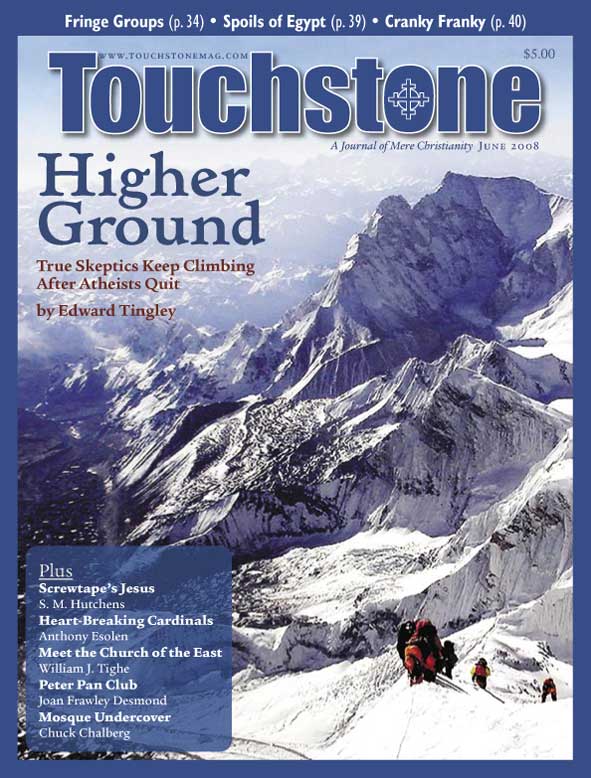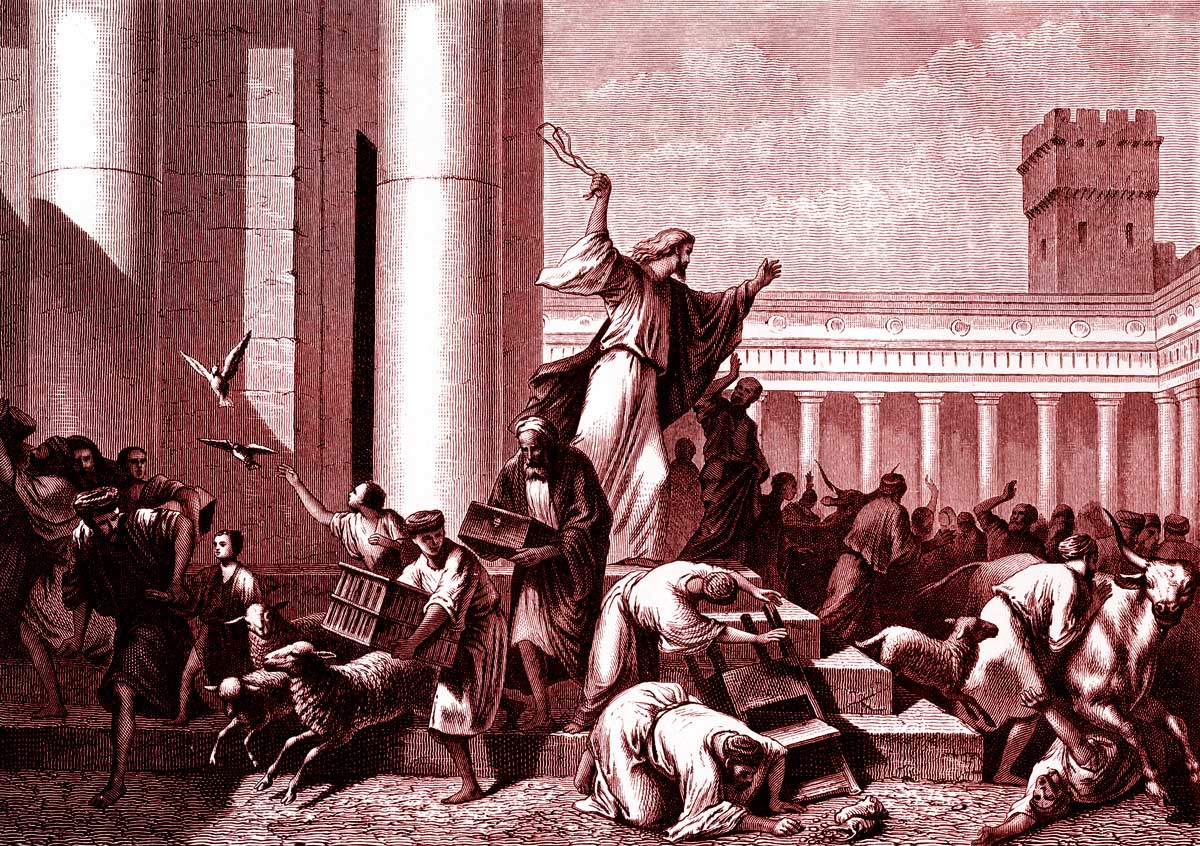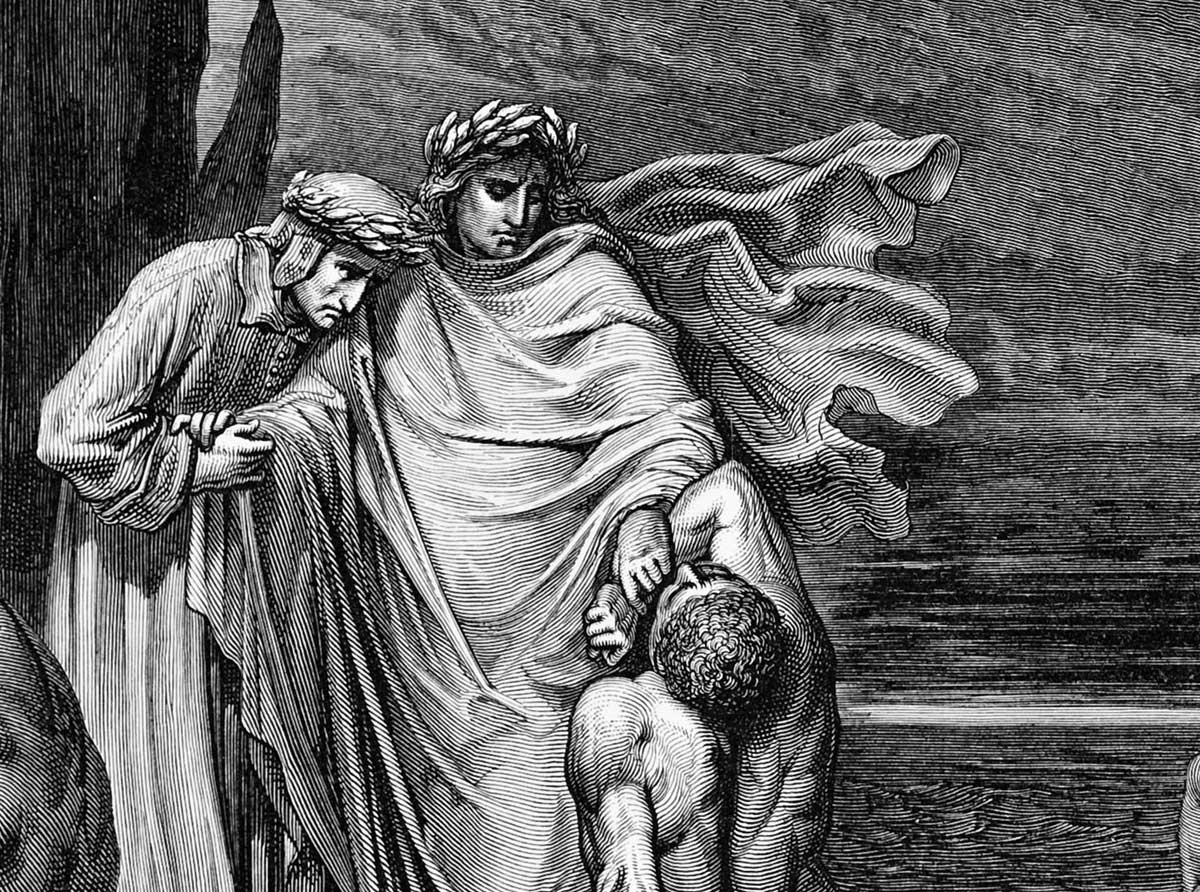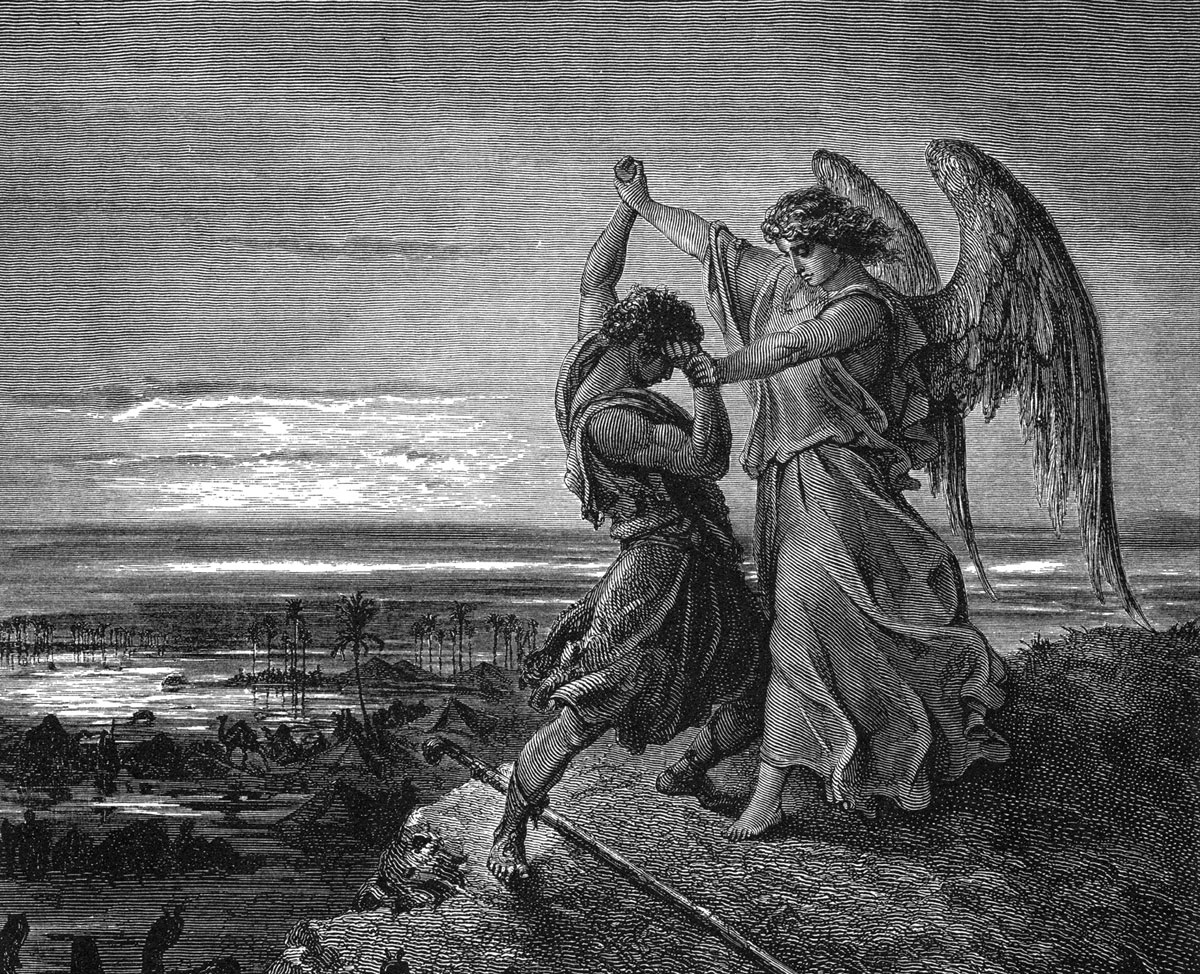Feature
The Skeptical Inquirer
If Only Atheists Were the Skeptics They Think They Are
Unbelievers think that skepticism is their special virtue, the key virtue believers lack. Bolstered by bestselling authors, they see the skeptical and scientific mind as muscular thinking, which the believer has failed to develop. He could bulk up if he wished to, by thinking like a scientist, and wind up at the “agnosticism” of a Dawkins or the atheism of a Dennett—but that is just what he doesn’t want, so at every threat to his commitments he shuns science.
That story is almost exactly the opposite of the truth.
Men of Truth
The story is right about virtue: The smoothly muscled skeptical-scientific mind is a gorgeous thing—picture the Apollo of Olympia, a poised young athlete in a throng of centaurs, passion-driven half-men. Science is a virtue: a perfection of the human creature gifted with a mind, a use of the mind that, says Aquinas, “perfects the speculative intellect for the consideration of truth.” But to be “men of truth,” in the words of Exodus, is to be vulnerable to truth.
Richard Dawkins speaks as a genuine scientist when he insists, “What I care about is what’s true; I want to know, is there a God in the universe or not?” Perfect. Truth is awaiting you, with its painful grip.
But on the question around which Dennett, Dawkins, Hitchens, Harris, Grayling, Onfray, and voices still to come are now springing up—the question of God—the successor of Apollo is not the atheist or the agnostic. Both lack the great virtue of the scientist, the skeptical virtue. Here they are the hankerers after comfort, the scrawny ones who prefer their own commitments over reason.
No matter how excellent these thinkers might be on other questions, on this question they nimbly shift their allegiance: Between the life they like and the demands of vocation (submission to the question), they choose their lives—ironically, the very failing for which they ridicule believers. A seeker of truth has to go where the truth can be found, and to go on until it is found, and both the atheist and the agnostic are early quitters.
Dawkins is right that “the question of the existence of God or gods, supernatural beings, is a scientific question,” straight from the mind hungry for truth. On that question, the path of the scientist was shown to us at the dawn of modernity by a consummate scientist: Blaise Pascal. Here was a scientific mind that brushed aside the medieval proofs of God (which did nothing for him) to attack the question anew.
People may think it just an odd coincidence that the author of the Pensées, a work of apologetics, also came up with Pascal’s law, on the transmission of pressure in confined liquids, but one mind seeking one thing generated both. Pascal was a lifelong seeker of truth: “I should . . . like to arouse in man the desire to find truth, to be ready, free from passion, to follow it wherever he may find it,” he says in Pensée 119. But the scientists who have asked Pascal’s question after him are rarely scientist enough for that.
Edward Tingley teaches philosophy at Augustine College in Ottawa and worships at the Cathedral of the Annunciation in the Anglican Catholic Church of Canada.
subscription options
Order
Print/Online Subscription

Get six issues (one year) of Touchstone PLUS full online access including pdf downloads for only $39.95. That's only $3.34 per month!
Order
Online Only
Subscription

Get a one-year full-access subscription to the Touchstone online archives for only $19.95. That's only $1.66 per month!
bulk subscriptions
Order Touchstone subscriptions in bulk and save $10 per sub! Each subscription includes 6 issues of Touchstone plus full online access to touchstonemag.com—including archives, videos, and pdf downloads of recent issues for only $29.95 each! Great for churches or study groups.
Transactions will be processed on a secure server.
more from the online archives
calling all readers
Please Donate
"There are magazines worth reading but few worth saving . . . Touchstone is just such a magazine."
—Alice von Hildebrand
"Here we do not concede one square millimeter of territory to falsehood, folly, contemporary sentimentality, or fashion. We speak the truth, and let God be our judge. . . . Touchstone is the one committedly Christian conservative journal."
—Anthony Esolen, Touchstone senior editor










